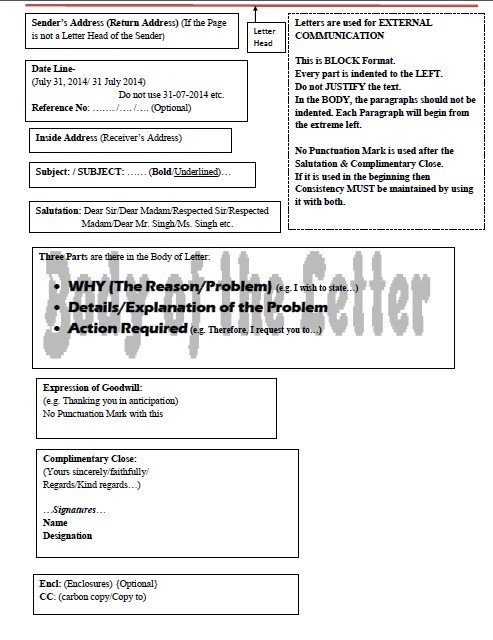Communication aims at 'transmission of information' from the source to the target. Conveying maximum information by using minimum words. If the 'conciseness, preciseness and clarity' rules are followed, you can convince the reader. It is not said without reason that 'simplicity' attracts the viewer.
The reader of the letter doesn't want to be burdened with flattery or rudeness. It is the skilled and smart use of words that opens the gateway to successful letter writing.
This is the age of being 'busy' and we should remember that the receiver of our letter can also be a busy person. We can not expect that our communication will be treated with the top-most priority. Hence, we need to make it catchy, without compromising with the content and the intentions. Do not forget that a letter is doing the conversation on paper just because you are not present in person. So, talk through written words in the same concerned manner as you would have done in a face-to-face conversation. A letter is written in a given situation with a specific purpose. Do not forget that you are not writing to an organisation, but to an individual. The organisation may be a big one, still, the letter will be read by an individual.
Format Of the Letter:
Read the following refusal letter. How would you feel if you got it? Src
With reference to your application of 14 May for the post of Assistant Manager in our Sales Department, you are hereby informed that we are not able to offer this position to you.
It could perhaps be redrafted as follows to reflect the courteous attitude:
Thank you very much for your application of 14 May 2009 for the post of Assistant Manager in our Sales department.
We are sorry that at present we are not able to offer you this position. But we have noted your qualifications and experience and put your application on our files. Should an opportunity arise in future, we shall be pleased to consider you again. We appreciate the interest you have shown in our organisation.
Consideration for the reader's interests, needs and desires is also known as the 'YOU Attitude' in the business world. We need to have this approach as the reader is the 'don of the day' for us. If you go with the 'I' it limits the effectiveness of your writing. When a reader receives a letter, he assesses how it affects him and his work. He also thinks of the actions he needs to take on it. A direct-personal approach, which the 'you' attitude ensures, will transmit the message quickly and evoke the desired response.
Example:
CROWD Approach: We are pleased when we receive such suggestions from our customers.
YOU Approach: We are grateful for the suggestions you have made.
CROWD Approach: This book will help the readers in writing good English.
YOU Approach: This book will help you in writing good English.
Listen to the Explanation Here
As we have noted the Components of Block Format, see the arrangement of them:








